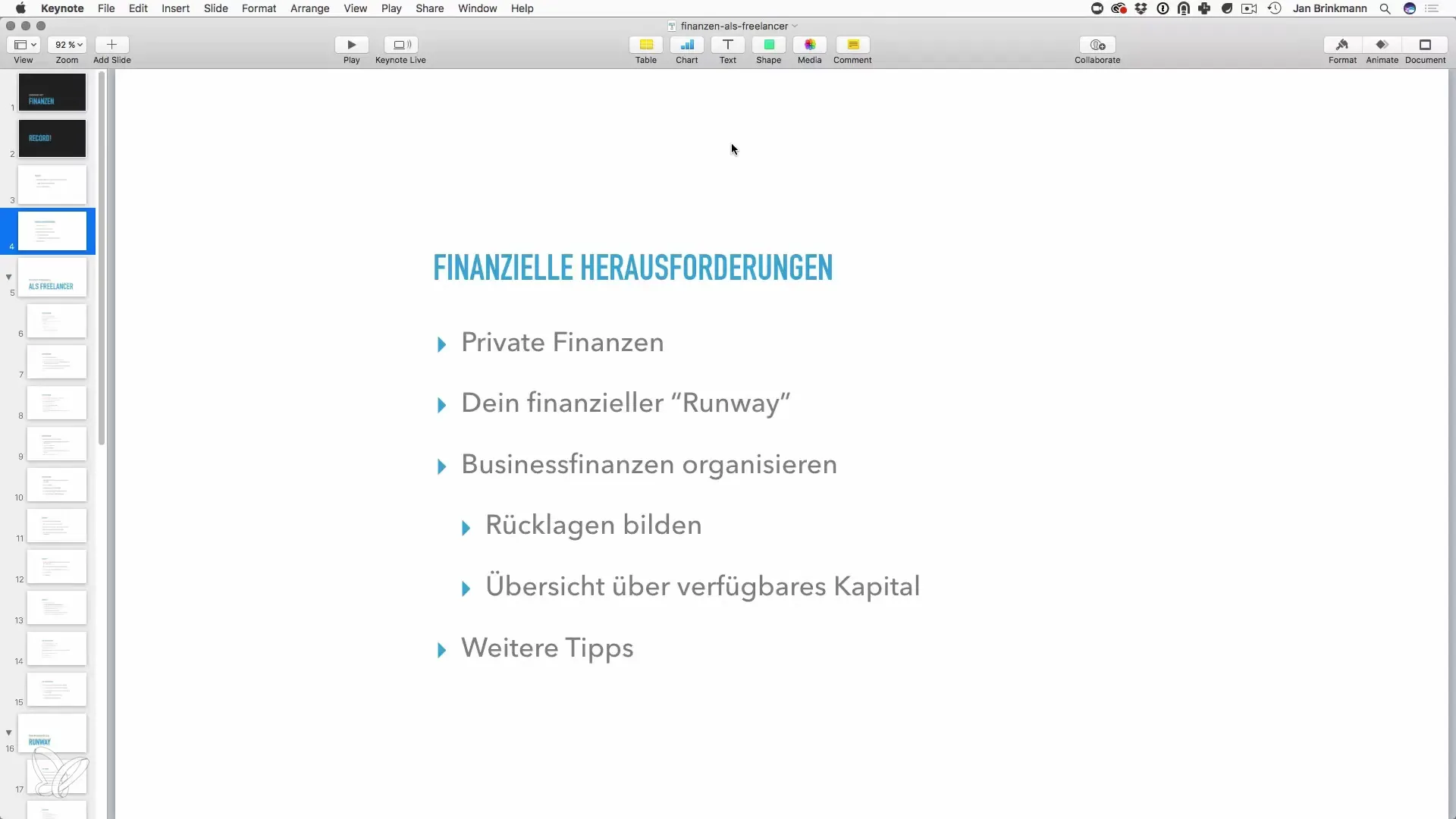For every freelancer, finances are a fundamental topic that often determines success or failure. You are your own boss, and that means not only managing your projects yourself but also being fully responsible for your financial well-being. As a freelancer, it is crucial to clearly separate personal and business finances to quickly get an overview of your financial situation. In this guide, you will receive valuable tips on how to successfully organize and manage your finances.
Main Insights
- Personal finances and business finances should be clearly separated.
- A complete overview of all expenses is essential.
- Provision and savings are important for your financial security in the long term.
Step-by-Step Guide to Managing Your Finances
1. Separation of Personal and Business Finances
One of the first things you should do as a freelancer is to strictly separate your personal and business finances. This helps maintain a clear overview of your income and expenses. A separation is not only important for your own clarity, but it also facilitates tax reporting. It is advisable to maintain separate accounts for personal and business expenses.

2. Overview of Your Financial Runway
After you have separated your finances, it is important to get an overview of your financial runway. Calculate how long you can live on your savings and identify all necessary expenses. A financial runway is the period you can bridge with your current capital before you need additional income.
3. Organization of Your Business Finances
To effectively organize your business finances, create a system for managing income and expenses. A common method is to use accounting software or spreadsheets that help you keep track. Keep all relevant receipts and invoices well organized to prevent later tax challenges.
4. Savings and Common Challenges
The formation of savings is another important aspect for freelancers. It is advisable to set aside a portion of your income regularly to cover unexpected expenses or times with fewer assignments. This can include savings for taxes, revenues, or retirement provisions.
5. Suggestions for Provision
Retirement provision is often a neglected topic for self-employed individuals. Consider now how you can plan for your retirement. There are various options such as private pension insurance or investments in ETFs. You should actively engage with this topic to prepare for the future.
6. Consultation in Financial Matters
Not every freelancer is a financial expert, and it may be advisable to consult a professional advisor. This can help you better assess your individual financial situation and find the best investment models or provisioning measures for you. A solid consultation can also help you minimize risks.
Summary – Finances for Freelancers: A Guide to Financial Independence
Properly managing your finances is a crucial factor for your success as a freelancer. Start by separating your personal and business finances, gain an overview of your financial runway, organize your business finances, and build savings. Additionally, it is wise to take care of your retirement provision early and to seek professional advice if necessary.
Frequently Asked Questions
What are the key steps for separating finances?The key steps are maintaining separate accounts and carefully documenting all income and expenses.
How do I calculate my financial runway?The financial runway is calculated by dividing your current savings by your average monthly expenses.
Why are savings important?Savings help cover unexpected expenses and bridge financial gaps during less successful months.
How can I prepare for retirement?You can prepare for retirement by investing in private pension insurance or investing in fund-related products.
When should I consult a financial advisor?It is advisable to consult a financial advisor if you are uncertain about which financial products are most beneficial for you or if you want to optimize your financial situation.


